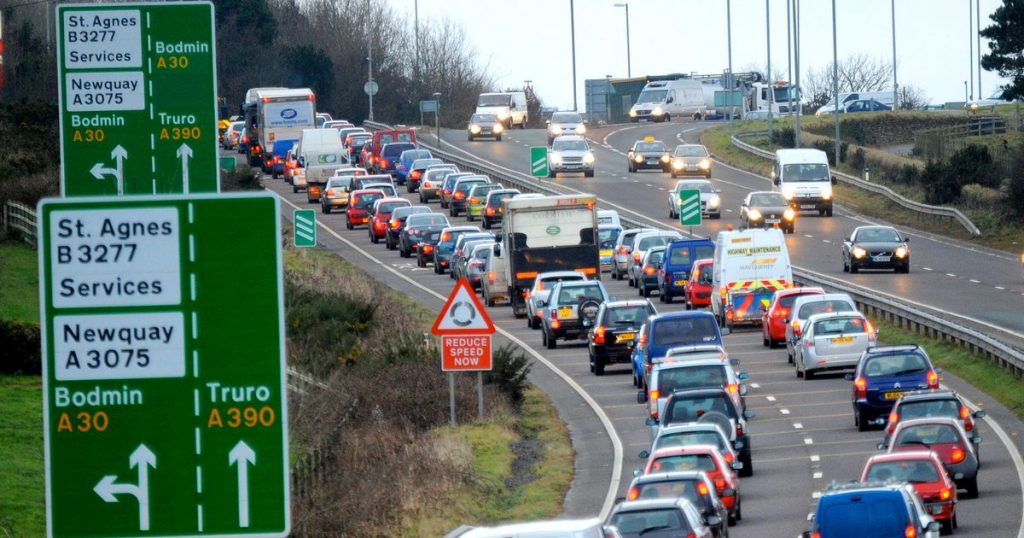Who will benefit from the new South West 660 tourist route?
.
The West Country undoubtedly has some wonderful places to explore:
There are concerns, however, that tourism numbers are down in this area – again, as reported in the i news:
In spite of the recent heatwave, the picture isn’t as sunny for UK’s tourism sector as it might look
But has the West Country in fact had its fill of tourism and tourists?
Some years ago, the author Raynor Winn wrote about her very personal journey along the South West Coastal Path in her striking memoir “The Salt Path”.
Here she is writing about the way in which tourism is overwhelming the West Country:
Cornwall is pushed to the limit each summer and a new touring route could bring congestion to every corner
The South West 660 is pitched as a means of slow travel as it uses B routes and lanes, yet Scotland’s NC500 shows how such routes can fracture rural tranquility with traffic jams
I live in Cornwall. A county of hidden coves, tiny lanes edged by high banks, and wildlife that has been driven from the busy populated areas out into the wildness of the Cornish coastline. This is a beautiful county, loved by so many and visited by even more. Every summer the county heaves under the weight of tourism, its infrastructure stretched to the limit.
A new touring route is being promoted here; the South West 660, hugging the coast from Poole in Dorset to Watchet in Somerset, with a mission to support local and regional brands and promote slow travel. It guides traffic to every hidden corner where the wildlife still thrives at the edge of the land, to every hidden cove where the seals call. Pollution and congestion are now being encouraged into every tiny lane and byway.
Who will benefit from this I wonder? A tourism industry that already operates at near-full capacity for three seasons of the year? Possibly. Maybe not the local residents who already find it difficult to go about their daily lives on gridlocked summer roads. Absolutely not the wildlife and biodiversity of the area.
... Undoubtedly, touring routes do bring financial benefit, but should that really be allowed to outweigh the environmental cost?
[Raynor Winn’s new book, Landlines, will be published by Penguin Books on 15 September] @raynor_winn
A photo of Branscombe features in a Times report on the Route:
The South West 660: the new scenic driving route from Poole to Watchet | Travel | The Sunday Times
We have to be asking these questions:
Is our local economy is dangerously over-exposed to tourism? – Vision Group for Sidmouth
Is a more sustainable tourism possible?
Promoting green tourism in East Devon – Vision Group for Sidmouth
The impact of tourism on the planet – Vision Group for Sidmouth
Looking to a new kind of tourism after the corornavirus – Vision Group for Sidmouth
Here’s both a personal account and comprehensive study exploring the issues in the West Country:
This account will explore the case of Cornwall, the leading holiday destination in the far south west of the UK and an Arts Council funded Cultural Destination. As Project Director for this cultural tourism programme, I have been responsible for initiatives which brought more visitors to the region to enjoy arts and heritage venues and activities and increased the resilience of the visitor economy.
My concerns over the sustainability of the industry were always present but as public consciousness of the Climate Emergency intensifies and co-ordinated action is curbed by Brexit inertia, a tourism sector deal is published with no mention of the environment and the colonisation of the creative industries by neoliberalism continues, I am fearful for the future of our vibrant, distinct culture and communities. Accepting the complexity of the political, social and physical environments in which tourism operates, I argue that the cultural sector should assume a more strident position to demand and create conditions for transformation.
Volume or value? Complex sustainability and Cultural Tourism | The Clore Leadership Programme
.
